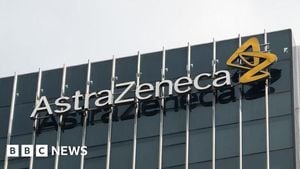Novel CAR T-Cell therapies are transforming the treatment of blood cancers, offering promising results for patients who have long faced limited options. These advanced treatments, particularly focusing on B-cell malignancies, are demonstrating high efficacy rates, which could represent significant progress for those battling relapsed or refractory diseases.
One such noteworthy advancement is the recently published results from the Phase Ib/II FELIX trial, which examines the effectiveness of the new anti-CD19 CAR T-cell therapy, known as obecabtagene autoleucel, or obe-cel. According to researchers from The University of Texas MD Anderson Cancer Center, this therapy has shown remarkable outcomes for adults diagnosed with relapsed or refractory CD19-positive B-cell acute lymphoblastic leukemia (ALL).
The clinical trial revealed impressive statistics: among 127 patients evaluated, the response rate was 76.6%, and the complete remission rate hit 55.3%. Such numbers are impressive when considering the gravity of being diagnosed with advanced forms of blood cancer. The median event-free survival (EFS) clocked in at 11.9 months, with respective EFS rates of 65.4% and 49.5% at six and twelve months. Overall survival (OS) for recipients of the therapy was recorded at 15.6 months, with 80.3% of patients still alive at six months and 61.1% at one year.
These findings served as the basis for the recent approval granted by the Food and Drug Administration (FDA) for obe-cel earlier this month, marking it as a viable treatment option for adults with this challenging blood cancer. Dr. Elias Jabbour, the study's U.S. lead investigator, pointed out the significance of the results, stating, "Patients with B-cell ALL need effective standalone treatment options, and obe-cel demonstrated strong long-term efficacy and response rates." He emphasized how the treatment provides new hope for patients who previously faced few alternatives.
What sets obe-cel apart is not just its effectiveness, but also its relatively gentle side effect profile compared to other treatments. The FELIX trial noted mostly mild incidences of cytokine release syndrome (CRS) and neurotoxicity, with three patients experiencing grade 3 or higher CRS symptoms and nine suffering from immune effector cell-associated neurotoxicity. Remarkably, the therapy didn't present unexpected adverse effects, aligning with data from previous CAR T-cell studies.
Looking closely at the outcomes, it’s noteworthy to mention the limited dependency on subsequent treatments, such as stem cell transplants (SCT). Among the 99 patients who showed positive treatment responses, only 18 required SCT. The researchers even observed no significant difference between those who underwent SCT and those who did not, indicating the strongly durable response offered by obe-cel therapy.
Further encouraging news came with the study's exploration of minimal residual disease (MRD) assessment following treatment. An alarming number of patients diagnosed with blood cancers traditionally have small percentages of remaining cancerous cells, which pose risks for relapse. Among high-risk patients enrolled in the study, 68 individuals achieved complete remission, with 58 verified to be MRD-negative post-infusion of obe-cel. This aspect of treatment success certainly enhances the credibility of CAR T-cell therapy's role within the therapeutic space.
Dr. Jabbour plans to provide additional insights on the relationship between MRD-negative remissions and clinical outcomes during his upcoming presentation at the 66th American Society of Hematology (ASH) Annual Meeting, which is slated to take place on December 9, 2024, where he anticipates discussing the depth of response with fellow researchers and medical professionals.
Despite being grounded within clinical trials, the optimistic narrative does not solely revolve around obe-cel. The broader horizon of CAR T-cell therapies is steadily earning attention for its revolutionary potential within hematologic malignancies. Developments within this field, especially those focusing on CAR T-cells targeting non-Hodgkin's lymphoma, are paving new avenues for treatment.
Companies like HaemaLogiX are eyeing significant growth within the sector, aiming for public listing by 2025 as they seek to capture their share of the $23 billion market dedicated to treating multiple myeloma—another notorious blood cancer. Former minister Greg Hunt leads the company with aspirations of strong contributions to the treatment and research endeavors surrounding blood cancers.
The growing evidence of improved efficacy and safety profiles within CAR T-cell therapy treatments is indicative not just of corporate interest but also reflects surging patient hope. This nascent treatment model delivers customized interventions for blood cancer patients, effectively utilizing the body's immune response to target cancer cells. Such innovations have truly transformed the clinical approach toward hematological malignancies, making CAR T-cell therapies valuable additions to the oncology arsenal.
To conclude, advancements like the approval of obe-cel are ushering in a new era for cancer therapies, particularly for patients previously bereft of options. Through persistent research and groundbreaking clinical trials, the field of blood cancer treatment continues to evolve, ensuring brighter outcomes for those faced with the challenges of relapsed and refractory diseases.



